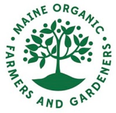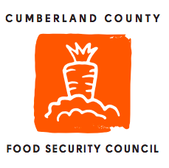Community Profiles
The 2022 Community Profile highlights the most recent data and information regarding food security in Maine, Cumberland County, and specifically Portland.
If you are curious about food security in your own community, let us know and we'd be happy to develop a profile for you to share with your community. Email [email protected] for more information.
If you are curious about food security in your own community, let us know and we'd be happy to develop a profile for you to share with your community. Email [email protected] for more information.
Food Access Resources
Find a food pantry!
Shop local with SNAP benefits!
Grow Your Own Food!
- Maine: Good Shepherd Food Bank Food Map
- Cumberland County: Wayside Food Program's Community Resources
Shop local with SNAP benefits!
- Check out the Maine Harvest Bucks program where you can double your SNAP dollars at participating markets and farm stands
- Check out the Farm Fresh Rewards program where you can double your SNAP dollars at participating grocery stores
Grow Your Own Food!
- Apply for free gardening resources from the Maine Foodscapes Garden Project
- Reach out to your local Community Garden to inquire about low and no-cost gardening
How to Access & Support Local Food
Check out the "Maine Farm Product & Pick Up Directory" below - a wonderful resource from the University of Maine Cooperative Extension that allows you to find farms near you and information on where to access their products.
|
Attend your local farmers market! To find a market or more information about farmers markets in Maine, click the image below.
|
Grow your own food! MOFGA and UMaine Cooperative Extension both have great resources and events to help you grow your own food.
|




